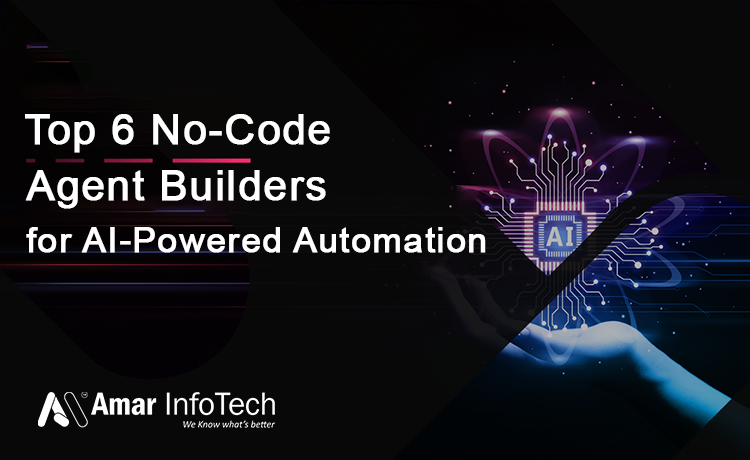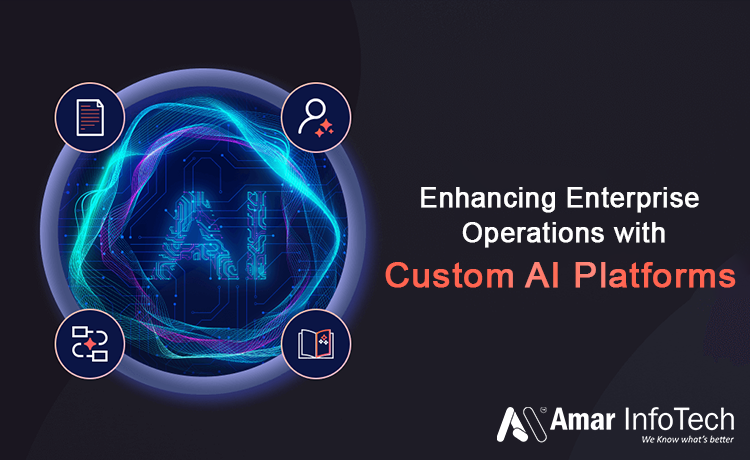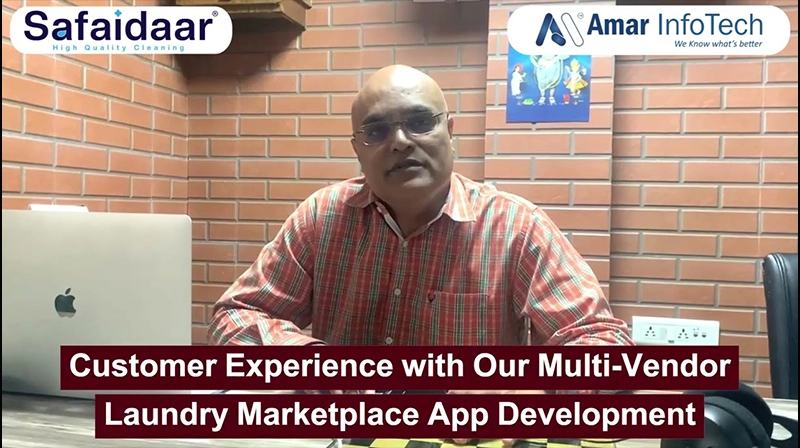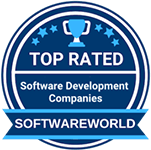Creating software involves many people in different roles. Both DevOps engineers and software engineers are important for making and releasing software. They have different jobs. DevOps engineers manage software operations and workflow, while software engineers design, daevelop, and test software.
Understanding these differences can help you choose the right career path in software development or find the right people for your business needs.
DevOps engineers focus on creating automated processes for developing, testing, deploying, and maintaining software systems throughout the software development lifecycle (SDLC). They play a big role in development strategies and have specific responsibilities within the process. Companies often hire experienced DevOps engineers to speed up software development and improve their processes.
On the other hand, developers have a narrower focus. They write code for applications and build features for software systems. They follow the plans set by software product managers and architects.
If you're starting a new project and aren't sure who to hire, this blog post will help you understand the differences between DevOps engineers and software developers, and what each of them can do for your project.
What is a Software Developer?
A software Developer focuses mainly on designing and building software products. They use various tools and programming languages to write code and create software. Their job includes fixing errors, maintaining, and testing software.
Software covers everything from mobile apps to web applications. Software developers are skilled professionals who make these programs. They tackle tough problems and use different techniques to build software, like algorithms and programming styles.
The tasks of software developers can be divided into three main parts:
- Writing code using programming languages, frameworks, and other tools.
- Testing software to ensure it works well, is secure, and does what it's supposed to.
- Maintaining software by fixing errors and bugs in the code.
What is a DevOps Engineer?
A DevOps engineer is someone who mixes software development (Dev) and IT operations (Ops) to streamline software development and delivery easier. They team up with software developers, QA testers, and IT operation teams to connect development and operations. Using tools and processes, they make software delivery and deployment smoother and boost teamwork for better software quality and dependability.
DevOps engineers handle several tasks like building and managing Continuous Integration/Continuous Delivery (CI/CD) pipelines, handling infrastructure as code, keeping an eye on system health, setting up and keeping servers and databases running, and fixing problems in live environments. They also help set up good practices for software development like code checking, testing, and automated deployment.
For this role, strong communication skills are important as they deal with different teams. They should know various DevOps tools like Git, Jenkins, Ansible, Docker, Kubernetes, and cloud services such as AWS, Azure, or Google Cloud Platform.
Comparison between Software Developer and DevOps Engineer
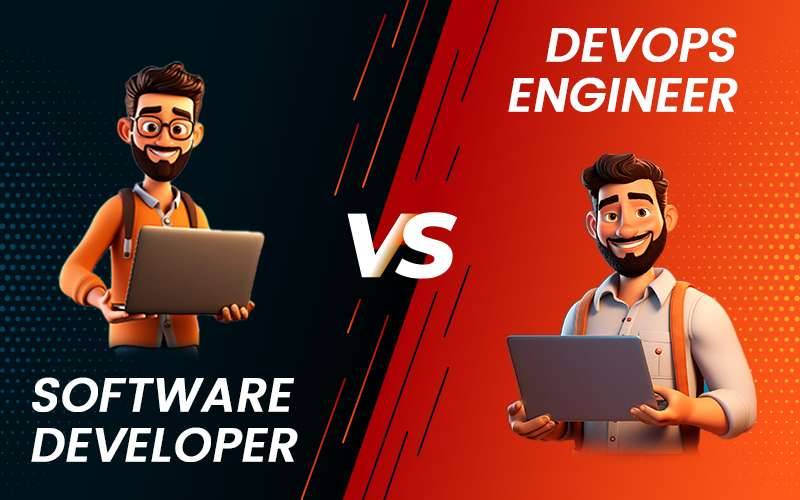
While both software developers and DevOps engineers work with code, their focuses differ. Software developers mainly write and test code to create applications, while DevOps engineers concentrate on automating processes and ensuring smooth operations. Think of software developers as builders constructing a house, while DevOps engineers are the ones making sure everything runs smoothly, like the plumbing and electricity.
Roles and Responsibilities for Software Developers and DevOps Engineers
Roles and responsibilities for Software Developers and DevOps Engineers can vary based on the organization's size, structure, and specific requirements of projects. However, here's a detailed breakdown of typical responsibilities for each role:
Software Developer Responsibilities
Software Developers play a crucial role in designing, developing, and maintaining software solutions. Their responsibilities encompass various stages of the software development lifecycle, including requirement analysis, coding, testing, and deployment. They collaborate closely with cross-functional teams to ensure the delivery of high-quality software products aligned with project goals and industry standards.
Software Development:
- Write clean, scalable, and efficient code using best software development practices.
- Collaborate with other team members (such as designers and product managers) to determine project requirements and specifications.
- Participate in the entire software development lifecycle, including requirement analysis, design, coding, testing, deployment, and maintenance.
- Develop software solutions that meet the business needs and align with architectural standards.
- Troubleshoot, debug, and resolve software defects and technical issues.
Technology Proficiency:
- Stay updated with the latest software development technologies, tools, and trends.
- Utilize programming languages, frameworks, libraries, and tools effectively to develop high-quality software solutions.
- Demonstrate proficiency in version control systems (e.g., Git) and collaborative development workflows.
Testing and Quality Assurance:
- Write unit tests and participate in code reviews to ensure code quality and maintainability.
- Collaborate with Quality Assurance (QA) engineers to identify and address software defects.
Documentation and Communication:
- Document software designs, architecture, and technical specifications.
- Communicate effectively with team members and stakeholders to provide updates, gather requirements, and address concerns.
Continuous Improvement:
- Continuously seek opportunities to improve existing software applications and development processes.
- Participate in knowledge sharing sessions and contribute to the team's collective learning and growth.
DevOps Engineer Responsibilities:
DevOps Engineers streamline software delivery by automating processes, fostering collaboration, and ensuring the reliability of infrastructure. They bridge the gap between development and operations through continuous integration, containerization, monitoring, and security practices, all aimed at delivering scalable software solutions aligned with business goals.
Infrastructure Provisioning and Configuration:
- Provision, configure, and manage infrastructure resources using Infrastructure as Code (IaC) tools such as Terraform or CloudFormation.
- Set up and maintain cloud infrastructure (AWS, Azure, GCP) and on-premises servers.
- Implement configuration management tools (e.g., Ansible, Puppet, Chef) to automate server provisioning and configuration.
Continuous Integration and Deployment (CI/CD):
- Design and implement CI/CD pipelines for automated build, test, and deployment processes.
- Integrate automated testing frameworks into CI/CD pipelines to ensure software quality and reliability.
- Monitor CI/CD pipelines, identify bottlenecks, and optimize for efficiency and reliability.
Containerization and Orchestration:
- Utilize containerization technologies such as Docker to package and deploy applications consistently across different environments.
- Orchestrate containerized applications using tools like Kubernetes for automated deployment, scaling, and management.
Monitoring and Logging:
- Set up monitoring and logging systems to track the health, performance, and availability of infrastructure and applications.
- Implement tools like Prometheus, ELK stack (Elasticsearch, Logstash, Kibana), or Splunk for monitoring and logging.
Security and Compliance:
- Implement security best practices and compliance standards for infrastructure and applications.
- Manage access controls, encryption, and network security configurations.
- Conduct regular security audits and vulnerability assessments to identify and mitigate risks.
Collaboration and Communication:
- Collaborate with development, operations, and QA teams to streamline development and deployment processes.
- Communicate effectively with stakeholders to gather requirements, provide updates, and address concerns related to infrastructure and deployment.
Documentation and Knowledge Sharing:
- Document infrastructure configurations, deployment processes, and troubleshooting procedures.
- Share knowledge and best practices with team members to foster a culture of continuous learning and improvement.
Disaster Recovery and Incident Management:
- Develop and maintain disaster recovery plans and procedures to minimize downtime and data loss.
- Participate in incident response and resolution activities, including root cause analysis and post-incident reviews.
Conclusion
Software developers and DevOps engineers play critical roles in the technology industry. While software developers focus on writing code and creating applications, DevOps engineers ensure smooth operations and efficient software delivery. Both roles are essential for businesses looking to stay competitive in today's digital world.
Frequently Asked Question (FAQ's)
What skills do I need to become a software developer or DevOps engineer?
For software development, you'll need proficiency in programming languages like Python, Java, or JavaScript. DevOps engineers require skills in automation, cloud computing, and infrastructure management tools.
What's the difference between DevOps and agile?
Agile is a software development methodology focused on iterative development and collaboration, while DevOps is a set of practices aimed at streamlining software delivery and operations.
Are software developers and DevOps engineers in high demand?
Yes, both roles are in high demand as businesses increasingly rely on technology for their operations. Companies are looking for skilled professionals who can develop software efficiently and ensure smooth operations.
What education do I need to become a software developer or DevOps engineer?
While a formal degree in computer science or a related field is beneficial, many software developers and DevOps engineers also gain skills through self-study, coding bootcamps, or online courses. Practical experience and a strong portfolio of projects are often valued highly in the tech industry.
What are some popular tools used by software developers and DevOps engineers?
Software developers often use integrated development environments (IDEs) like Visual Studio Code, JetBrains IntelliJ IDEA, or Eclipse. DevOps engineers commonly use tools such as Jenkins, Docker, Kubernetes, Ansible, Terraform, and Git for automation, containerization, orchestration, and infrastructure management.
How can I transition from software development to DevOps?
Transitioning from software development to DevOps typically involves gaining expertise in areas such as automation, continuous integration and deployment (CI/CD), infrastructure as code (IaC), cloud computing, and containerization. If you're looking to make this transition, consider contacting ExcelPTP for DevOps IT Training. Their comprehensive courses cover essential DevOps concepts, tools, and hands-on experience, providing you with the skills and knowledge needed to excel in a DevOps role.
What soft skills are important for software developers and DevOps engineers?
In addition to technical skills, communication, collaboration, problem-solving, and adaptability are essential soft skills for both software developers and DevOps engineers. These roles often involve working closely with cross-functional teams and stakeholders, so effective communication and teamwork are crucial.
How can I stay updated with the latest trends and technologies in software development and DevOps?
Keeping up with industry trends and emerging technologies can be achieved through various means, including attending tech conferences, participating in online forums and communities, reading tech blogs and publications, taking online courses, and engaging in continuous learning and professional development activities.




